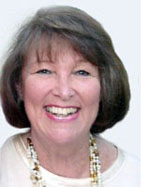By Cynthia Citron

LOS ANGELES — A few days ago, the West Coast premiere of a play by David Ives demonstrated that that imposition of certain religious convictions on the differing beliefs of another person has been going on seemingly forever.
Ives’ play is called New Jerusalem, The Interrogation of Baruch De Spinoza at Talmud Torah Congregation: Amsterdam, July 27, 1656. The New Jerusalem was Amsterdam, which had provided refuge for Spanish and Portuguese Jews fleeing the Inquisition of the 15th and 16th centuries.
Miguel Spinoza, a Portuguese merchant whose family had been forced to convert to Catholicism, returned to Judaism when he settled in Amsterdam. His son, Baruch, was given a traditional Jewish education. But by the age of 23 Baruch had embarked on a philosophical journey that took him far afield from the beliefs of his contemporaries.
He believed in “panentheism” which doesn’t distinguish between God and nature and stipulates that God is a substance that exists outside of time, and that nature is a subset of God. “How can the nonphysical produce the physical?” he asked.
He believed that we partake of eternity in life, that there is no life after death, that there is no free will, that everything that happens is a product of cause and effect, that God is perfect but indifferent to man, that religion is meant to keep people obedient and fearful, and the religion that Jews and Christians subscribe to is mere superstition.
At that time in Amsterdam the Jews were protected, but were treated as second-class citizens. They could practice their religion, but only in private And so, because Spinoza was becoming an influential figure, (his rabbi called him “a second Solomon”), the Dutch soon regarded him as a public nuisance and prevailed upon his community to silence him.
Thus it was that on July 27, 1656, the pillars of the Temple (including Spinoza’s mentor, Rabbi Saul Mortera) gathered to question Spinoza’s beliefs.
And here, unfortunately, the play degenerates into disputatious didacticism. Spinoza’s philosophy becomes a monologue that is not as difficult to follow as it might seem, but you have to really work at it. And you have to stay with it.
Under Marco Naggar’s bland portrayal, however, Spinoza does not engender much sympathy. More sympathetic is Rabbi Mortera (Richard Fancy), who agonizes over Spinoza’s self-righteous opinions and eventually cries, “it’s the truth, but your world cannot be lived in! You have emptied my heaven!”
Then, with the support of a high city official, Abraham van Valkenburgh (a marvelously volatile Mark Bramhall), the Jewish elders pronounce a hideously destructive sentence that excommunicates Spinoza from “all the tribes of Israel” and brings down upon him “the anger and wrath of the Lord” and “all the curses that are written in the Book of the Law.”
Set and costume designer Stephanie Kerley Schwartz, Lighting Designer Leigh Allen, and Sound Designer Bill Froggatt have enhanced the production as much as is possible in a single setting, but Elina de Santos, a much-acclaimed director, has faltered a bit here because the very nature of the play virtually ensures that it will come off as static and overly complicated. And that’s a hard act to overcome.
New Jerusalem, The Interrogation of Baruch De Spinoza at Talmud Torah Congregation: Amsterdam, July 27, 1656, is a production of the West Coast Jewish Theatre. It will continue Thursdays through Saturdays at 8 p.m. and Sundays at 3 through April 1st at Pico Playhouse, 10508 W. Pico Blvd., Los Angeles. Call (323) 821-2449 or visit www.wcjt.org for tickets.